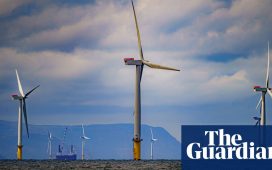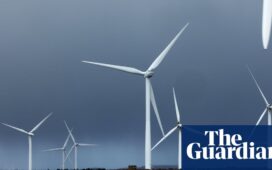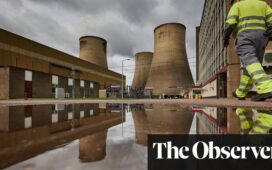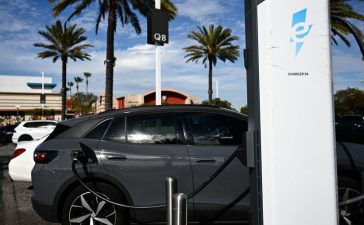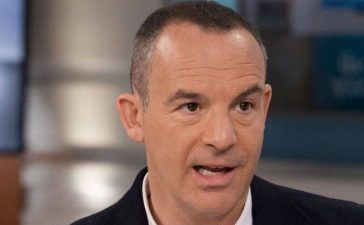Labour’s independent energy advisers have warned the party against watering down its £28bn green spending plans in advance of its promise to create a zero carbon electricity system by 2030.
Experts at the climate thinktank Ember, which provided the independent analysis underpinning Labour’s green targets, said growing international competition for low-carbon investment from the US and EU could leave the UK lagging in the global race for low-carbon energy.
The research has shown that Labour’s ambitious plans to break Britain’s reliance on gas power plants, which provided more than 30% of the UK’s electricity last year, was technically possible within this decade. But the thinktank’s analysts said cutting back on spending plans would move Britain in “completely the wrong direction”.
The 2030 goal would require big investments in clean energy infrastructure. Under the plans, wind and solar would make up about 70% of the electricity mix in 2030, while 30% of the UK’s electricity would come from a mixture of other low-carbon sources including new nuclear reactors, other renewables and hydrogen.
Harriet Fox, an energy and climate analyst at Ember, said: “What I would say is that now is not the time to pull back on investment, when the rest of the world is starting to gear up. It’s completely the wrong direction. With the US and the EU now vying for the attention of green energy companies the UK does not want to be left behind.”
Labour cast doubt on its plans to remove virtually all carbon emissions from the UK’s electricity system by the end of the decade, five years ahead of the government’s existing plans, after admitting that economic pressure on public spending could mean that its earlier £28bn promise was not sacrosanct.
Sources within the party have argued that this spending target was designed to achieve more than a virtually zero-carbon power system by 2030 by creating homegrown green jobs and boosting local supply chain companies.
The 2030 target could still be achieved with lower public spending by overhauling the UK’s regulatory and planning systems to help private sector investment to play a bigger role, one source said.
Some of the biggest barriers to the UK’s green energy targets hinge on significant hurdles in the UK’s planning system, which has slowed the pace at which green projects can connect to the power grid.
The Labour party also accused the government of overseeing an “energy security disaster” last year after it failed to attract any new investors to a key offshore wind subsidy auction.
Investments in big green energy projects and grid infrastructure are expected to lower household energy bills in the long term by making cheap renewable energy more available. Research by Ember found households could save £300 a year on energy bills by 2030 by running a 98% zero carbon electricity grid.
“The investment that a government makes now, will pay for itself in the future,” Fox said. “It will be paid back through lower energy bills because the greener our energy system becomes the cheaper it will be for the consumer. Investment today, will only be beneficial in the long run.”

